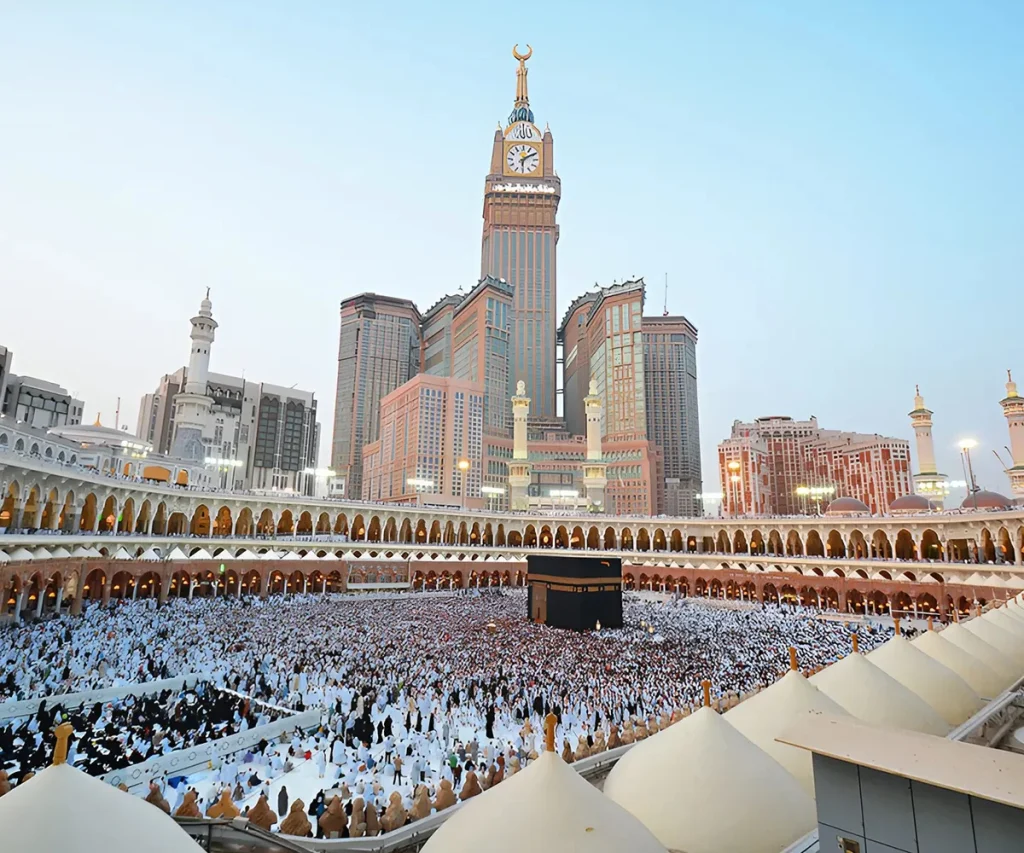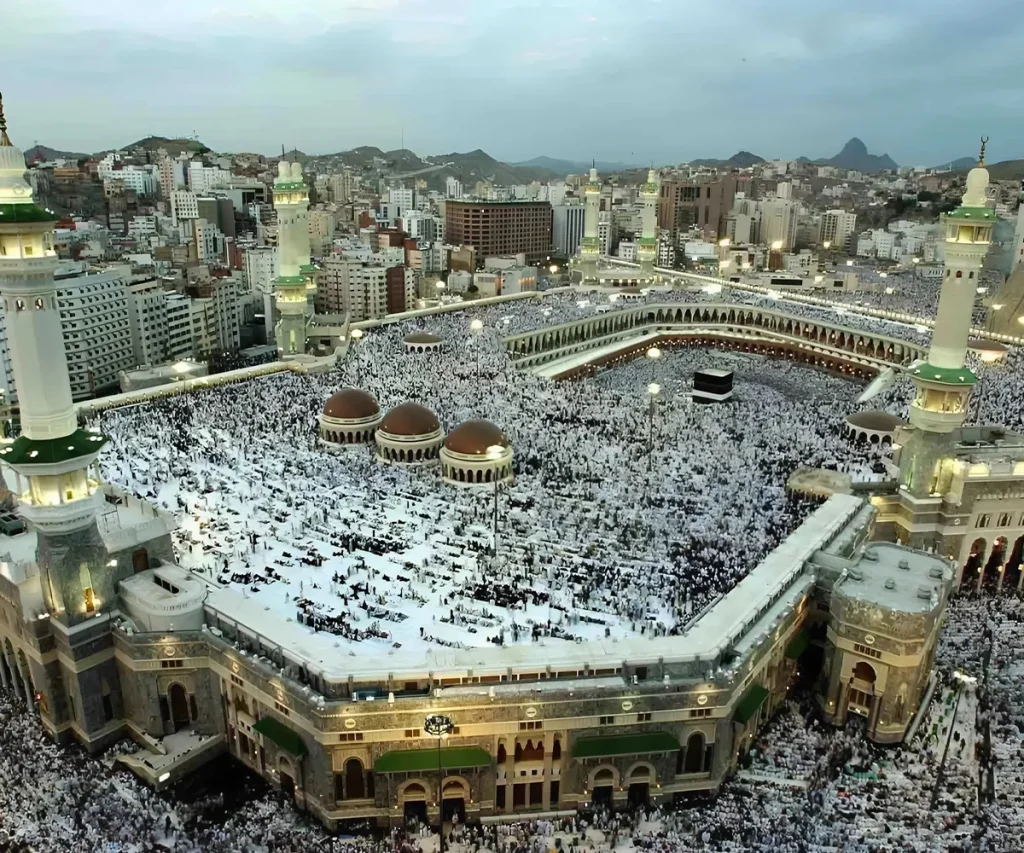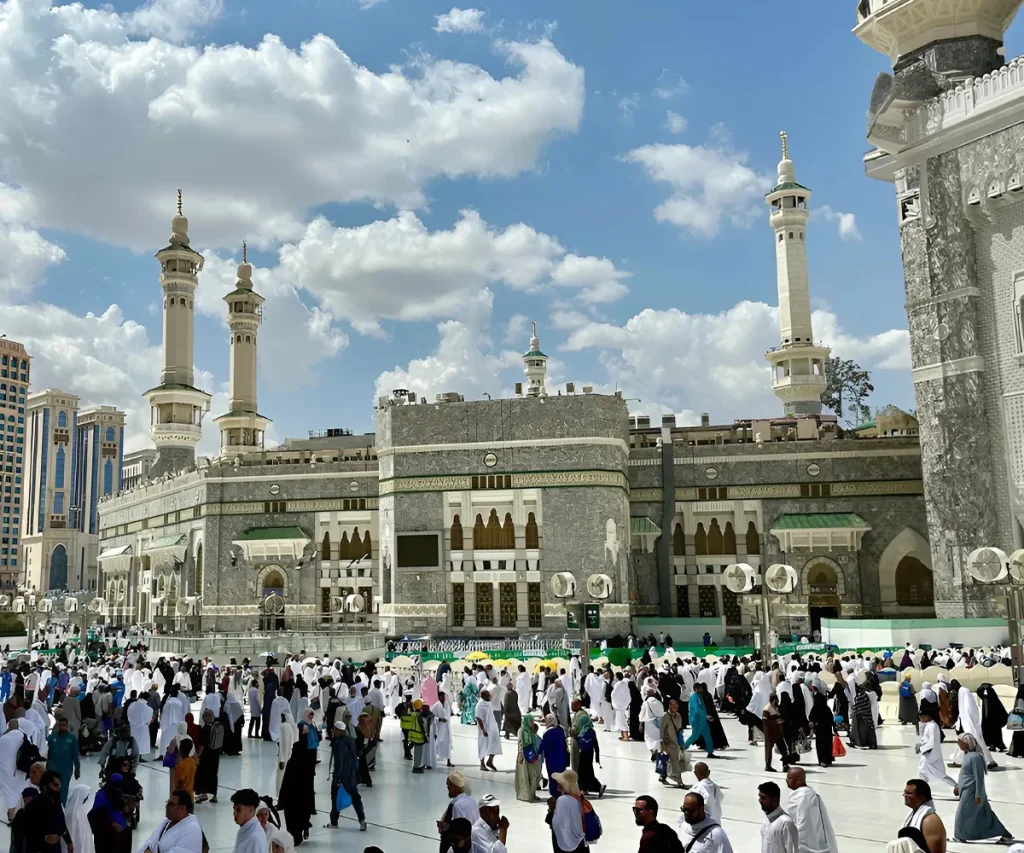

For Muslims worldwide, Ramadan is a deeply spiritual and very important month. Fasting, prayer, self-reflection and community are all a part of the time when believers fast, pray and practice self-discipline to strengthen their connection with Allah. Ramadan is an opportunity to abstain from food and drink from dawn to sunset, as well as to engage in acts of kindness, charity and increased devotion. In fact, many Muslims take this sacred time to perform Umrah, a pilgrimage to Makkah that has great spiritual rewards, particularly so during this blessed month.
Ramadan is more than worship, it is a part of history and revelation from God. This month was when Prophet Muhammad (peace be upon him) was first revealed the first verses of the Qur’an on Laylat al-Qadr (The Night of Decree), a night believed to be more powerful than a thousand months. Ramadan traditions, community prayers, sharing meals, giving charity, and seeking forgiveness reflect the essence of Ramadan. During this time people who are Muslims around the world exercise the essence of this holy month which is patience, gratitude and unity, Ramadan becomes a special time of the year.
Islam has a very rich historical and spiritual significance of Ramadan. It reminds the reader of Qur’an first revelation as the month in which Allah descended the destiny of mankind as the first month in which the Qur’an was down revealed. With all of that, Muslims are encouraged to use this sacred time to reflect on their faith, seek forgiveness, and make something of a personal connection with their Creator. Laylat al-Qadr is the spiritual essence of Ramadan and the night one of the most powerful nights of worship and prayers are performed and considered better than a thousand months.
Of course, apart from its historical significance, Ramadan is a period to grow morally and personally. Fasting is not only a process of abstinence from food and drink, but also one of self control in terms of thoughts and actions. Patience, empathy on those who are unfortunate and of course the meaning of being grateful. Ramadan is transformed into a time of renewal through fasting which is a holistic approach of purification of the body and soul through devotion, prayer and good deeds.
Suhoor is the pre-dawn meal which is taken before the day of fasting starts, which gives strength to the day ahead. Iftar is broken at sunset, usually beginning with dates and water, according to the Sunnah of Prophet Muhammad (peace be upon him). For many, Iftar is a communal event that brings one’s family and friends to come together to share meals, show thanks and reflect on the blessings of Ramadan.
These special prayers are performed at night after Isha (night prayer) in congregation at the mosque. In Taraweeh, long passages of the Qur’an are recited and many are trying to complete the entire scripture by the end of the month of Ramadan. This nightly prayer is a great source of spiritual blessings, bringing the community together in worship, and allowing the people to reflect on the message of the Qur’an.
The month in which the first revelation was sent down is Ramadan, and it is Ramadan that is known as the month of the Qur’an. During the month, many Muslims spend extra time reading and understanding the Qur’an with the aim of reciting it. It strengthens faith, guides the spiritual life, and reminds one of the wisdom and teachings that guide a Muslim’s daily life.
In Ramadan, acts of charity are highly encouraged since this month is a month of compassion and generosity. Zakat is obligatory on Muslims and they are also encouraged to give Sadaqah (voluntary charity). Not only is it a religious duty, but also it is a way to bring joy and fulfillment, to spread kindness and unity in the community.
It is not uncommon for many Muslims to try and do Umrah in Ramadan as it is very spiritually rewarding. It was narrated that the Prophet (peace be upon him) said that Umrah in Ramadan is equivalent to Hajj in reward. It is a sacred journey for believers to purify their souls, seek forgiveness and feel the great spirituality of Makkah in the holiest month. That is a time of deep reflection and a time to build faith.
Suhoor is the pre-dawn meal which is taken before the day of fasting starts, which gives strength to the day ahead. Iftar is broken at sunset, usually beginning with dates and water, according to the Sunnah of Prophet Muhammad (peace be upon him). For many, Iftar is a communal event that brings one’s family and friends to come together to share meals, show thanks and reflect on the blessings of Ramadan.
Unity and togetherness is what Ramadan is about. The families pray, eat meals together, discussing spiritual issues and nurturing the ties of relationships. Worshippers fill mosques and communities throw charity drives to help those in need. Ramadan is a time of belonging, a time to spread kindness, love and harmony among Muslims, irrespective of their background, and it is a time that is truly inclusive and heartwarming.
Laylat al-Qadr (The Night of Decree) is supposed to take place during the last ten nights of Ramadan. It is said that worship on this night is equal to a thousand months of worship. These nights are spent by Muslims in deep prayer, in seeking forgiveness, reciting the Qur’an, and making heartfelt supplications. This is a time of great spiritual contemplation and closeness to Allah.
Eid al Fitr marks the joyous festival that marks the end of Eid al Fitr. First is a special prayer in congregation, then feasts, gift giving and charity. Muslims dress up, visit family and friends, and give thanks for completing a month of worship. Zakat al-Fitr is one of the key traditions in that we are giving it so that even the less fortunate can be a part of the celebrations, spreading Happiness and Generosity.
Fasting in Ramadan is more than just a month of fasting; It’s a time of spiritual renewal, self-reflection, devotion and charity. Muslims fast, pray and give charity, to help them draw closer to Allah and to strengthen the values of patience, gratitude and compassion. Iftar, Taraweeh prayers and Laylat al-Qadr tradition equally unite families and communities, so that Ramadan is a blessed and transforming time.
At the end of the month, Eid al-Fitr is the celebration of devotion and perseverance. In fact, many Muslims also want to get these additional spiritual rewards by performing Umrah during Ramadan as it is a blessed occasion. Ultimately, Ramadan is an opportunity to remind ourselves that the teachings of the month are meant to be carried out all year round kindness, faith and generosity.






Mohamed Al Tenaiji Travels offers expert travel and Umrah services worldwide. We strive to provide a seamless and unforgettable journey for our clients.